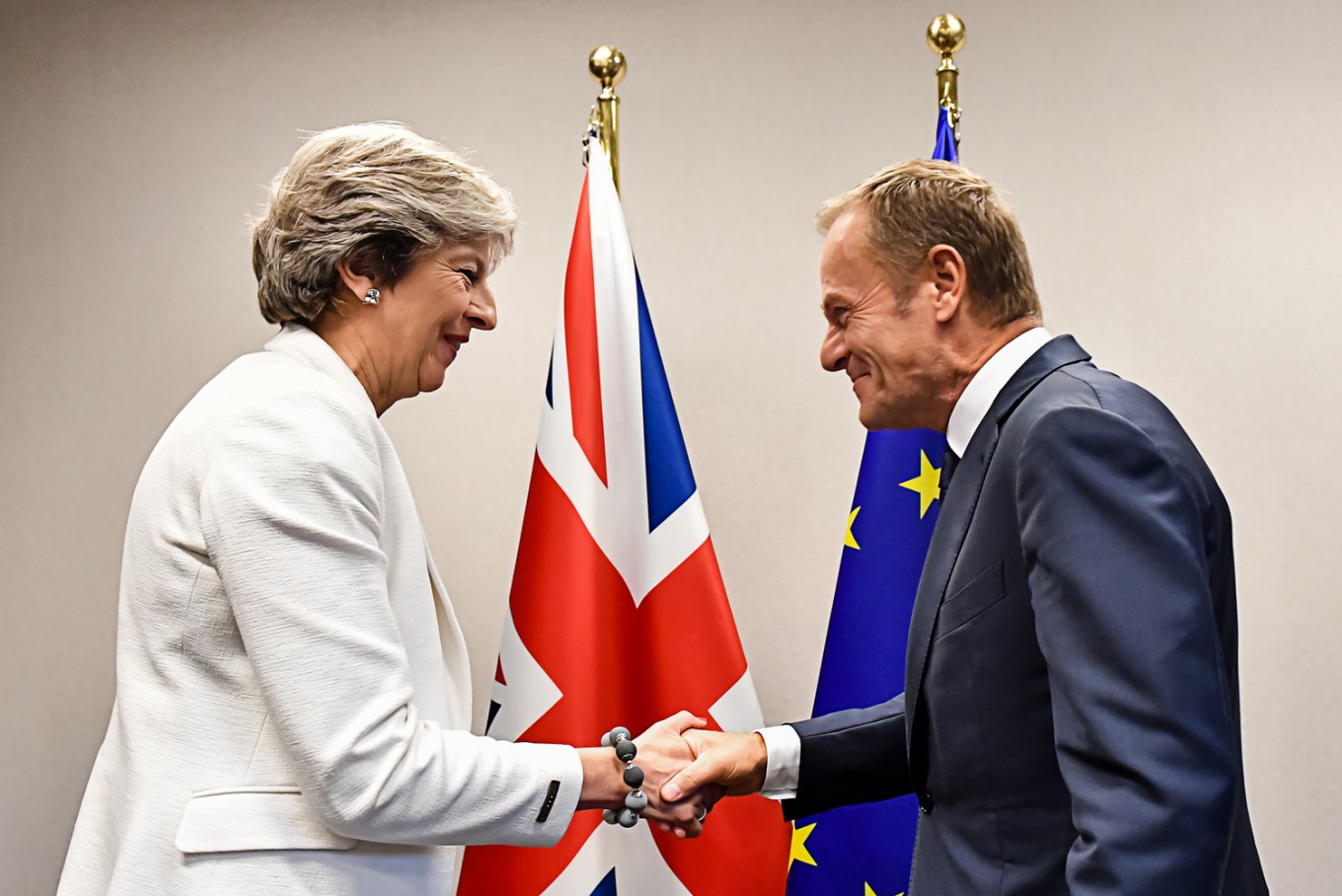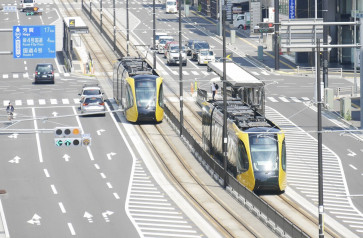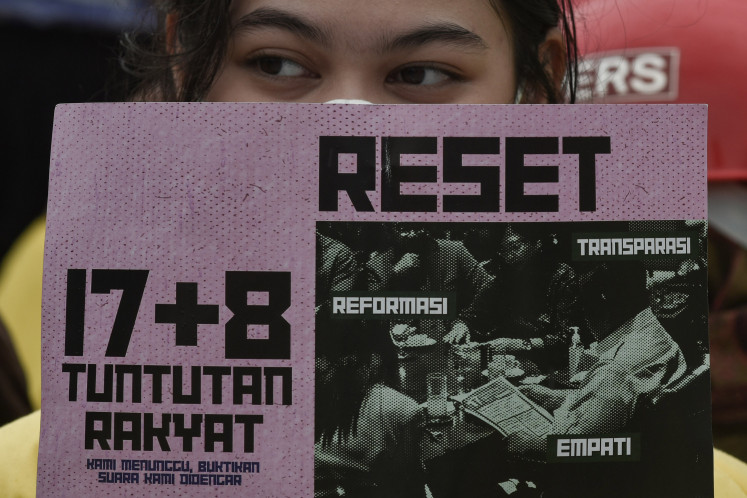Popular Reads
Top Results
Can't find what you're looking for?
View all search resultsPopular Reads
Top Results
Can't find what you're looking for?
View all search resultsEurozone still 'vulnerable' as recovery gathers pace: ECB
Change text size
Gift Premium Articles
to Anyone
 British Prime Minister Theresa May (left) is welcomed by European Council President Donald Tusk for a bilateral meeting during an EU summit in Brussels on Oct.20. The EU is expected to say that they will start internal preparatory work on a post-Brexit transition period and a future trade deal with Britain.
(POOL/AFP/Geert Vanden Wijngaert )
British Prime Minister Theresa May (left) is welcomed by European Council President Donald Tusk for a bilateral meeting during an EU summit in Brussels on Oct.20. The EU is expected to say that they will start internal preparatory work on a post-Brexit transition period and a future trade deal with Britain.
(POOL/AFP/Geert Vanden Wijngaert )
S
ome eurozone countries are still "vulnerable" to economic shocks even as a hard-won recovery from the financial crisis solidifies, European Central Bank vice-president Vitor Constancio cautioned on Monday.
"We are witnessing a sustained economy recovery in the euro area," Constancio told a financial congress in Frankfurt.
But "these developments should not lead to complacency. Vulnerabilities and challenges remain in many euro area economies," he added.
Despite swelling economic growth, "the number of young and long-term unemployed is still unacceptably high" in many of the single currency area's 19 member countries, the former Portuguese central bank chief pointed out.
At the end of 2016, some 38.4 percent of Greeks and 28.4 percent of Italians aged 15-29 were unemployed, Eurostat figures show.
The countries that were struggling economically were far behind eurozone frontrunners like Germany or the Netherlands, where the rates of youth unemployment stood at 6.2 percent and 8.6 percent respectively.
Meanwhile, some states remain highly indebted even after painful reforms turned budget deficits into surpluses, and private debts are also at a high level.
And the crisis has "interrupted the process of real convergence" in economically weaker countries towards the income levels and living standards seen in the eurozone's wealthiest nations, Constancio said.
With confidence shored up by strong economic performance, the ECB decided in October to slash by half the mass bond-buying it has used to buoy the eurozone.
From January, it will buy only 30 billion euros ($35 billion) of bonds per month instead of the present 60 billion.
Bond-buying, or "quantitative easing", has been used by central banks around the world to pump cash through the financial system and into the real economy of businesses and households in the wake of the crisis.
But the ECB's purchases have yet to bring inflation back to its target of just below 2.0 percent, regarded as most favourable for economic growth.
"We are not yet fulfilling our mandate," Constancio acknowledged.
"Monetary policy will have to continue to be very accommodative," with low interest rates and other measures to keep the credit taps open, he said.
Meanwhile, political leaders must do their part to bolster the eurozone, Constancio added, urging national capitals to press on with "structural and institutional reforms".
The ECB's vice president also lamented the halting progress the bloc has made in creating a common deposit insurance scheme for its banking system -- which supporters argue would make the single currency area more resilient to economic shocks.









